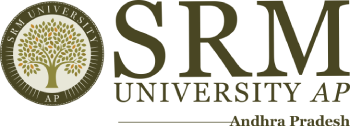SEAS
Department of Mathematics
From Aryabhata to Srinivasa Ramanujan, Mathematics is a field where Indians have always been considered trailblazers. The Department of Mathematics strives to create future powerhouses, through pure and applied mathematics learning as well as cutting-edge interdisciplinary scientific research.
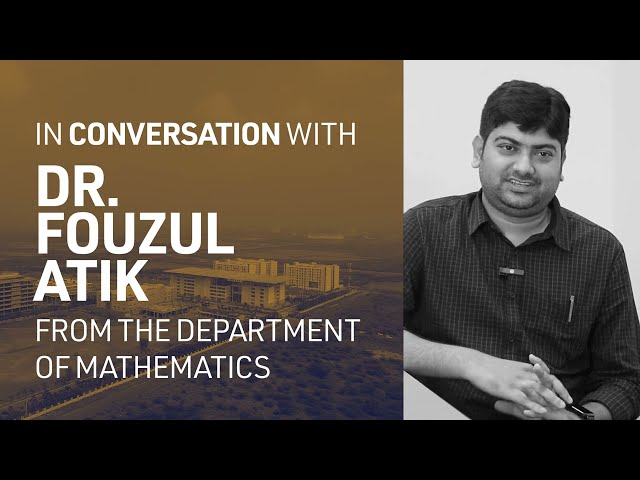
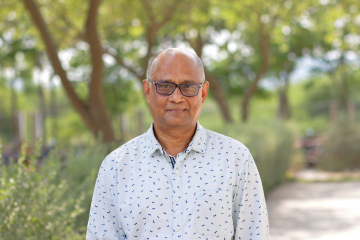
Message From HOD
Message from Prof. Kannan
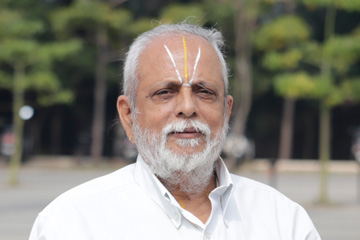
SRM University - AP
About Our Vision & Our Mission
At SRM University AP, our vision and mission are at the heart of everything we do. We envision a world where education empowers individuals to become leaders, innovators, and changemakers. Our mission is to provide students with not just academic knowledge, but the skills, creativity, and ethical grounding needed to thrive in the modern world.
Our Vision
To emerge as a world-class centre of excellence in the field of mathematics for teaching and research that will contribute to the well-being of society and foster collaborative research.
Our Mission
Create a vibrant mathematical atmosphere with strong undergraduate and graduate programs in mathematics as per the best universities in the world. Create strong research groups with renowned researchers across the world in the field of mathematics. Maintain high standards of teaching and research in various areas of pure, applied, and other areas of mathematics.
Programmes Offered
At School of Engineering and Sciences , our departments work collaboratively to provide the highest quality services to our clients. From our innovative Research & Development team, which is constantly pushing boundaries to create groundbreaking solutions, to our dedicated Customer Support department, ensuring seamless experiences, every department plays a pivotal role in driving our success.
B.Sc. Mathematics (Hons.)
SRM University-AP is one of the first Indian universities to introduce a four-year undergraduate programme in Mathematics. The aim of our curriculum is to provide one of the best undergraduate programmes in Mathematics in India.
MSc Mathematics
This course is a combination of mathematics emboldened with data science & computer-assisted simulations. The curriculum has been designed in order to fulfil the current demands of applicable mathematics without altering the essence of basic mathematics courses.
PhD in Mathematics
The Department of Mathematics is offering a full-time PhD programme with an adequate amount of fellowship and accommodation. It is desirable that the candidate must have 55% in their master’s degree and/or qualify for one of the national tests like GATE, CSIR-JRF, NBHM etc.
Latest News
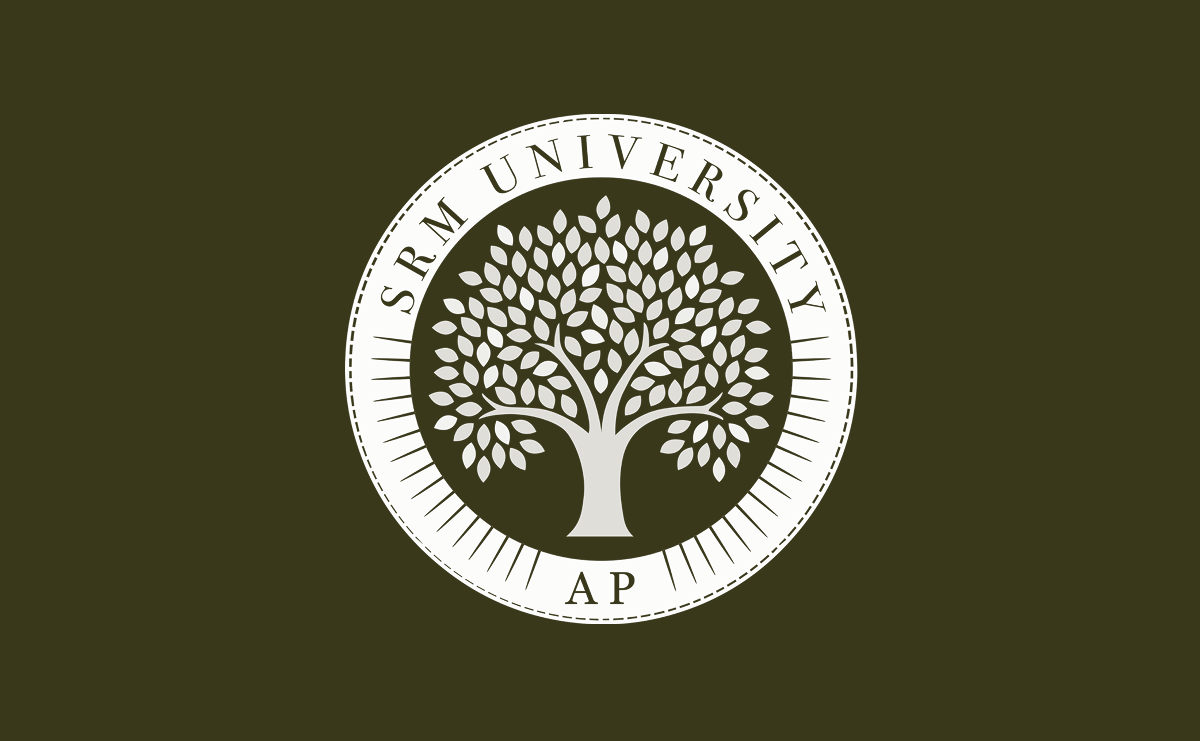

Applications of Geometry of Numbers and Quaternions of the Number...

Structure of C* Algebras and Brateli Diagrams


Superimposing Theta Structure on a Generalized Modular Equation

Some Problems Regarding Visibility of Integer Lattice Points and Related...

Certain Quasi-Analyticity Results and Their Application in Fourier Analysis

Probabilistic Aspects of Complex Networks: A spectral View
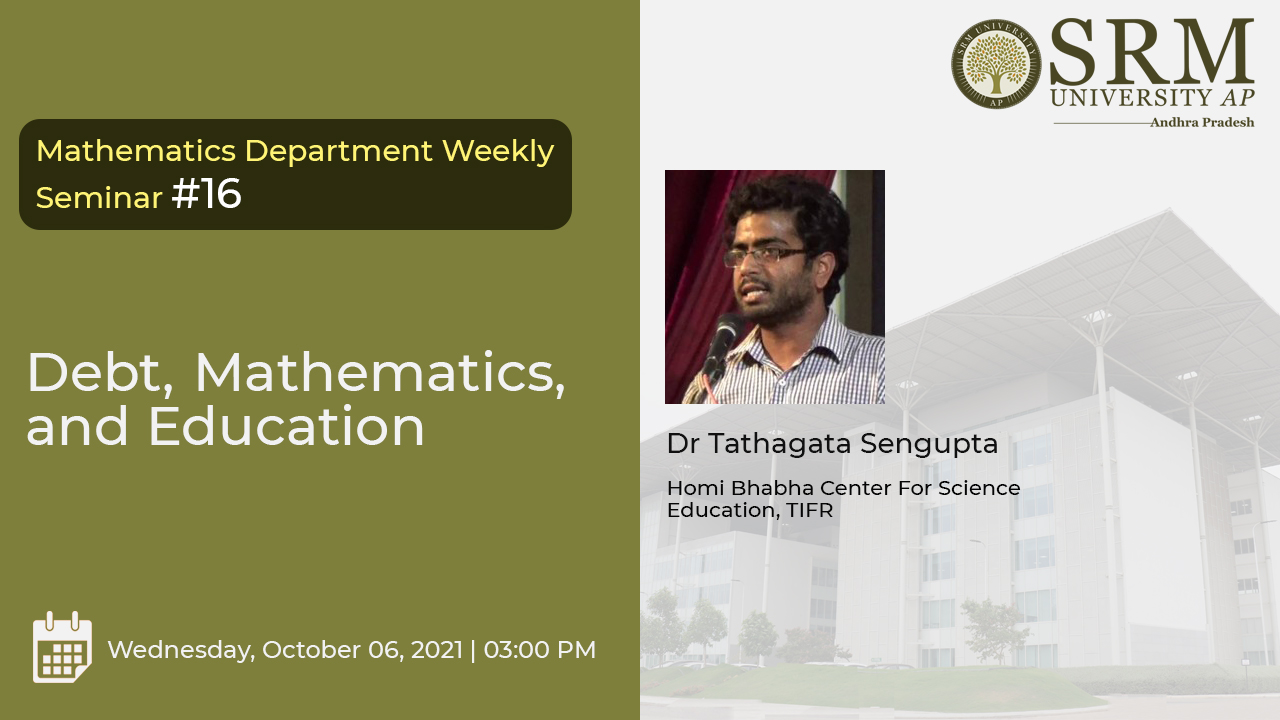
Dr Tathagata Sengupta to speak on ‘Debt, Mathematics and Education’.
 Department of Mathematics is organising the 16th edition of the “Departmental Weekly Seminar Series” on October 06, 2021, at 3 pm with Dr Tathagata Sengupta as the Chief Guest. Dr Tathagata Sengupta is from Homi Bhabha Centre for Science Education, Tata Institute of Fundamental Research and he is going to speak on ‘Debt, Mathematics and Education’.
Department of Mathematics is organising the 16th edition of the “Departmental Weekly Seminar Series” on October 06, 2021, at 3 pm with Dr Tathagata Sengupta as the Chief Guest. Dr Tathagata Sengupta is from Homi Bhabha Centre for Science Education, Tata Institute of Fundamental Research and he is going to speak on ‘Debt, Mathematics and Education’.
The talk is based on the ongoing work of Dr Sengupta, where he and his collaborators deal with the sociological, emotional and intellectual impacts of mechanical reproduction of formal knowledge systems – such as those based on mathematical models – in the service of economies of endless repetition and mass reproduction. Symbols and formalisms can carry over across different paradigms of human existence, across both time and space, without the underlying meanings and subtleties necessarily being carried along. Such nominalisation of meanings only gets exacerbated under systems of massive mechanical reproduction. Mathematical models particularly are not just mere vehicles of computation but play a paradigmatic role in the very realisation of today’s political economy – being endlessly used to reproduce social relations that suit the interests of power and capital.
Specifically, Dr Sengupta and his team analyse a particular, basic microfinance model that aims to mathematise and thus aid in the management of micro-lending businesses. They describe how such a model not only tries to construct particular social realities and certain kinds of financial ‘common sense’ as such but also how pre-existing normative common sense is likewise codified into the model itself. They argue how such mathematical models have no independent truth value outside of specific historic processes, contexts and paradigms of public common sense – hoping that this allows us to fundamentally shift the culture of mathematical modelling in a way that respects such subtleties of human knowledge in their extremely rich, dynamic, plural, communistic wisdom and creativity.
Dr Sengupta’s main attempt is to push the discussion not only out of the binaries of ‘good/bad models’ but also beyond rule-based rationalist imaginations of ethics into the mundane and emotional – and yet creative, subtle and even magical – daily existence of ordinary people. Existence is marked by social relations of radical inequalities and radical unities. In particular, this also opens up possible directions to pursue intellectually and in practice, when it comes to the question of education.
Mathematics enthusiasts can avail this opportunity to listen to the captivating talk of Dr Tathagata Sengupta on October 06, 2021 at 3 pm.

Conjectures of Minkowski and Woods in Geometry of Numbers
Latest Events


Applications of Geometry of Numbers and Quaternions of the Number...

Structure of C* Algebras and Brateli Diagrams


Superimposing Theta Structure on a Generalized Modular Equation

Some Problems Regarding Visibility of Integer Lattice Points and Related...

Certain Quasi-Analyticity Results and Their Application in Fourier Analysis

Probabilistic Aspects of Complex Networks: A spectral View

Dr Tathagata Sengupta to speak on ‘Debt, Mathematics and Education’.
 Department of Mathematics is organising the 16th edition of the “Departmental Weekly Seminar Series” on October 06, 2021, at 3 pm with Dr Tathagata Sengupta as the Chief Guest. Dr Tathagata Sengupta is from Homi Bhabha Centre for Science Education, Tata Institute of Fundamental Research and he is going to speak on ‘Debt, Mathematics and Education’.
Department of Mathematics is organising the 16th edition of the “Departmental Weekly Seminar Series” on October 06, 2021, at 3 pm with Dr Tathagata Sengupta as the Chief Guest. Dr Tathagata Sengupta is from Homi Bhabha Centre for Science Education, Tata Institute of Fundamental Research and he is going to speak on ‘Debt, Mathematics and Education’.
The talk is based on the ongoing work of Dr Sengupta, where he and his collaborators deal with the sociological, emotional and intellectual impacts of mechanical reproduction of formal knowledge systems – such as those based on mathematical models – in the service of economies of endless repetition and mass reproduction. Symbols and formalisms can carry over across different paradigms of human existence, across both time and space, without the underlying meanings and subtleties necessarily being carried along. Such nominalisation of meanings only gets exacerbated under systems of massive mechanical reproduction. Mathematical models particularly are not just mere vehicles of computation but play a paradigmatic role in the very realisation of today’s political economy – being endlessly used to reproduce social relations that suit the interests of power and capital.
Specifically, Dr Sengupta and his team analyse a particular, basic microfinance model that aims to mathematise and thus aid in the management of micro-lending businesses. They describe how such a model not only tries to construct particular social realities and certain kinds of financial ‘common sense’ as such but also how pre-existing normative common sense is likewise codified into the model itself. They argue how such mathematical models have no independent truth value outside of specific historic processes, contexts and paradigms of public common sense – hoping that this allows us to fundamentally shift the culture of mathematical modelling in a way that respects such subtleties of human knowledge in their extremely rich, dynamic, plural, communistic wisdom and creativity.
Dr Sengupta’s main attempt is to push the discussion not only out of the binaries of ‘good/bad models’ but also beyond rule-based rationalist imaginations of ethics into the mundane and emotional – and yet creative, subtle and even magical – daily existence of ordinary people. Existence is marked by social relations of radical inequalities and radical unities. In particular, this also opens up possible directions to pursue intellectually and in practice, when it comes to the question of education.
Mathematics enthusiasts can avail this opportunity to listen to the captivating talk of Dr Tathagata Sengupta on October 06, 2021 at 3 pm.

Conjectures of Minkowski and Woods in Geometry of Numbers
Open Positions
- Ph.D. Notification 2025, Deadline: March 31, 2025
- Post Doctoral Position Notification
- Internship Position Notification
